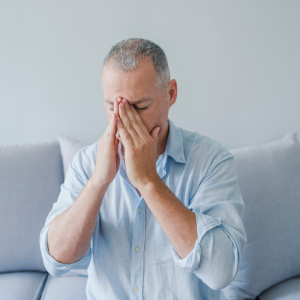Erectile dysfunction (ED) is a topic that often comes shrouded in misconceptions and misinformation. For many, it’s a taboo subject, and the myths surrounding it only add to the confusion. Let’s dive into some of the most common myths about ED and uncover the truth behind them. Whether you’re dealing with ED yourself or supporting someone who is, understanding the facts can make a big difference.
Myth 1: Erectile Dysfunction Only Affects Older Men
The Truth:
Erectile dysfunction is commonly associated with older men, but it’s not exclusive to them. While it’s true that the likelihood of experiencing ED increases with age, younger men can also be affected. According to studies, approximately 26% of men under the age of 40 experience ED. Various factors, including lifestyle, psychological stress, and medical conditions, contribute to ED in younger men. So, if you’re younger and experiencing ED, you’re not alone – get yourself down to this ED clinic Chesterfield and get the support you need.
Myth 2: If You Have ED, It Means You’re Not Attracted to Your Partner
The Truth:
This is a particularly damaging myth. Erectile dysfunction is often mistakenly thought to be a sign of a lack of attraction to one’s partner. In reality, ED can stem from numerous sources that have nothing to do with attraction or emotional connection. Physical issues like cardiovascular problems, diabetes, or hormonal imbalances can play a significant role. Psychological factors such as stress, anxiety, and depression are also major contributors.
Myth 3: Erectile Dysfunction is All in Your Head
The Truth:
While psychological factors can certainly contribute to ED, it’s not fair to say it’s all in your head. Erectile dysfunction can be a complex interplay of physical and psychological factors. Conditions like heart disease, high blood pressure, obesity, and neurological disorders can cause ED. Moreover, medications for various health issues can have side effects that impact erectile function.
Myth 4: Only Medications Can Treat ED
The Truth:
Medications like Viagra and Cialis are well-known treatments for erectile dysfunction, but they’re not the only options. Lifestyle changes can have a significant impact on ED. Regular exercise, a healthy diet, quitting smoking, and reducing alcohol consumption can improve symptoms. Psychological therapies, such as cognitive-behavioral therapy, can help address underlying psychological issues. In some cases, medical devices or surgical interventions may be recommended.
Myth 5: ED Means the End of Your Sex Life
The Truth:
Erectile dysfunction doesn’t have to spell the end of your sex life. There are many ways to maintain intimacy and sexual satisfaction despite ED. Open communication with your partner is crucial. Exploring other forms of sexual expression and pleasure can help maintain a healthy sexual relationship. Additionally, seeking professional help and following through with treatment plans can significantly improve the situation.
Breaking Down the Causes of Erectile Dysfunction
Physical Causes
- Cardiovascular Diseases – Conditions that affect blood flow, such as atherosclerosis (hardening of the arteries), high blood pressure, and high cholesterol, can lead to ED.
- Diabetes – This condition can damage the blood vessels and nerves that are crucial for an erection.
- Obesity – Excess weight can lead to cardiovascular disease and diabetes, which are risk factors for ED.
- Hormonal Imbalances – Low testosterone levels and other hormonal issues can affect erectile function.
- Medications – Drugs for high blood pressure, depression, anxiety, and other conditions can cause ED as a side effect.
Psychological Causes
- Stress and Anxiety – Worries about work, relationships, or financial issues can impact sexual performance.
- Depression – This mental health condition can decrease libido and lead to ED.
- Performance Anxiety – Fear of not being able to perform sexually can itself cause ED.
- Relationship Issues – Poor communication or unresolved conflicts with a partner can contribute to ED.
Steps to Take If You Experience ED
Step 1: Talk to Your Doctor
The first step is to consult with a healthcare provider. ED can be a sign of underlying health issues, so it’s important to get a thorough check-up.
Step 2: Address Lifestyle Factors
Consider lifestyle changes such as losing weight, quitting smoking, reducing alcohol intake, and increasing physical activity. These changes can improve overall health and erectile function.
Step 3: Consider Psychological Support
If stress, anxiety, or depression is contributing to ED, seeking help from a mental health professional can be beneficial. Therapy can help manage psychological factors and improve sexual health.
Step 4: Explore Treatment Options
Discuss various treatment options with your doctor. Medications, devices, or even surgery might be appropriate depending on the cause of your ED.
Step 5: Communicate with Your Partner
Maintaining open and honest communication with your partner about your condition can reduce stress and strengthen your relationship. Exploring different ways of being intimate can also help maintain a healthy sexual relationship.
Common Questions About Erectile Dysfunction
Q: Can exercise help with ED?
A: Yes, regular physical activity can improve blood flow, reduce stress, and enhance overall health, all of which can help with erectile function.
Q: Is ED a normal part of aging?
A: While the likelihood of experiencing ED increases with age, it is not an inevitable part of aging. Many older men maintain healthy erectile function.
Q: Are there natural remedies for ED?
A: Some natural remedies, such as ginseng, L-arginine, and pomegranate juice, are believed to help with ED. However, it’s important to consult with a healthcare provider before trying these remedies to ensure they are safe and effective for you.
Q: How do I know if my ED is psychological or physical?
A: Determining whether ED is psychological or physical can be complex. A healthcare provider can help diagnose the cause through medical history, physical examinations, and possibly some tests. Generally, if you can achieve erections in some situations (such as during sleep) but not during sexual activity, the cause might be psychological.
Conclusion
Don’t let myths and misconceptions hold you back. If you or someone you know is dealing with ED, reach out for help and take steps towards a healthier, happier life.





